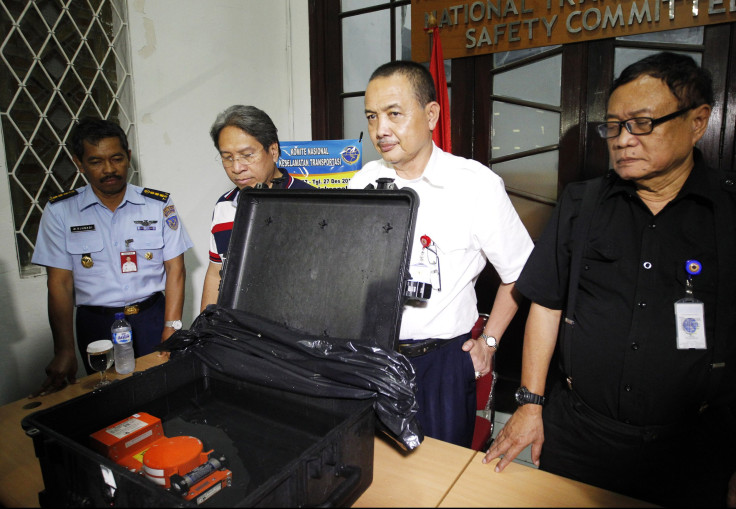AirAsia Flight 8501: ‘Screaming’ Alarms Buried Pilots' Voices, Stalling Alarm Also Heard Before Crash

AirAsia Flight 8501 alarms were “screaming” as the pilots attempted to control the plane before it crashed into the Java Sea, an investigator told Agence France-Presse (AFP) on Wednesday. Investigators at the National Transportation Safety Committee (NTSC) are analyzing the flight data recorders to determine the cause of the crash.
The NTSC investigator, who did not want to be named, told AFP that the sound of the alarms, which also included one that goes off when an aircraft stalls, were heard on the plane's cockpit voice recorder. The news comes a day after Indonesia’s transport minister said that the plane made an abnormally steep climb before stalling and crashing into the sea.
"The warning alarms, we can say, were screaming, while in the background they (the pilot and co-pilot) were busy trying to recover," the investigator reportedly said, adding that the warning signals went on “for some time.” The investigator also reportedly said that the pilots’ voices were buried by the sound of the alarms.
Transport Minister Ignasius Jonan had said Tuesday that radar data revealed that the plane “went up faster than normal speed. … Then it stalled.”
The NTSC’s chairman announced Wednesday that a preliminary report on the probe will not be publicly released. However, the agency investigating the crash is expected to conduct a press briefing next Wednesday, according to Reuters. On Tuesday, investigators said that the probe will now focus on human error and aircraft damage as possible reasons for the plane’s crash, after ruling out terrorist involvement.
Indonesia's meteorological agency had previously said that bad weather may have caused the crash after the plane went off radar on Dec. 28, following a request from the pilot for a change of course due to unfavorable weather.
Meanwhile, divers continue to make efforts to reach the fuselage at the bottom of the Java Sea where the bodies of several passengers are expected to be trapped. So far, 53 bodies of the 162 people on board the plane have been recovered from the sea, and 46 have been identified.
© Copyright IBTimes 2025. All rights reserved.





















